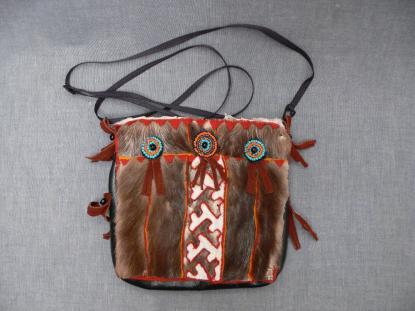2025. April 20. Sunday
Museum of Ethnography - Budapest
 |
Address: 1146, Budapest Dózsa György út - Ötvenhatosok tere
Phone number: (1) 473-2400
E-mail: info@neprajz.hu
Opening hours: Tue-Sun 10-18
|
The exhibition has closed for visitors.
2012.03.05. - 2012.08.26.
Museum tickets, service costs:
|
Individual ticket for adults
|
3000 HUF
|
|
|
Individual ticket for adults
(1 hour before closing)
|
1600 HUF
|
|
|
Group ticket for adults
(min. 10 people)
|
2600 HUF
|
/ capita
|
|
Individual ticket for students
|
1500 HUF
|
|
|
Individual ticket for students
(1 hour before closing)
|
800 HUF
|
|
|
Group ticket for students
(min. 10 people)
|
1300 HUF
|
/ capita
|
|
Individual ticket for pensioners
|
1500 HUF
|
|
|
Individual ticket for pensioners
(1 hour before closing)
|
800 HUF
|
|
|
Group ticket for pensioners
(min. 10 people)
|
1300 HUF
|
/ capita
|
|
Ticket for families
(2 adults + max. 3 children (up to 18 years old))
|
6300 HUF
|
/ family
|
|
Individual combined ticket for adults
(Zoom permanent exhibition + Ceramics Space + MÉTA)
|
1700 HUF
|
|
|
Individual combined ticket for adults
(We Have Arrived temporary exhibition + Ceramics Space + MÉTA)
|
2000 HUF
|
|
|
Individual combined ticket for students
(Zoom permanent exhibition + Ceramics Space + MÉTA)
|
850 HUF
|
|
|
Individual combined ticket for students
|
1000 HUF
|
|
|
Individual combined ticket for pensioners
(Zoom permanent exhibition + Ceramics Space + MÉTA)
|
850 HUF
|
|
|
Individual combined ticket for pensioners
(We Have Arrived temporary exhibition + Ceramics Space + MÉTA)
|
1000 HUF
|
|
|
Group walk ticket
(building walk, max. 15 people)
|
1500 HUF
|
/ capita
|
|
Group walk ticket for students
(Méta gallop, 10-20 people)
|
1200 HUF
|
/ capita
|
|
Group walk ticket
(building walk, in English, max. 15 people)
|
1800 HUF
|
/ capita
|
|
Group walk ticket for students
(Méta gallop, 10-20 people, in English)
|
1400 HUF
|
/ capita
|
|
Group guide
(10-20 people)
|
1000 HUF
|
/ capita
|
|
Group guide
(thematic, whit the curator of the exhibition, 5-20 people)
|
1300 HUF
|
/ capita
|
|
Group guide for students
(min. 10 people)
|
800 HUF
|
/ capita
|
|
Group guide
(10-20 people, in English)
|
1300 HUF
|
/ capita
|
|
Group guide
(thematic, whit the curator of the exhibition, in English, 5-20 people)
|
1690 HUF
|
/ capita
|
|
Group guide for students
(in English, 10-20 people)
|
1000 HUF
|
/ capita
|
|
Audio guide
|
1000 HUF
|
|
|
Photography
(for camera, camera-stand and telephoto lens)
|
700 HUF
|
Traditionally, the new temporary exhibition presenting the most important acquisitions of the former year opens on 5 March at the Ethnography Museum Day
The collection of the Ethnographic Museum grew by 523 items in 2011, including photos and objects. The exhibition selects of theses, also showing two nativity play sets. The new acquisitions on display vary greatly. The visitors will find old and new, traditional and modern objects from Europe and outside of Europe.
The Regional Collection consists of, among others, objects that originally arrived to be shown at the Finn- Ugric Congress: clothing from Mar, a complete Bulgarian folk outfit, two chairs from the Pamir Mountain and also textiles from Africa, from the collection Frigyes Fuszek. The Household Collection consists of ceramics from Korond from the collection of Tibor Gyula Lakatos, a pitcher from Gömör and also furniture from Dunakeszi. The museum continued collecting item for its merry-go-round collection. The Textile Collection consists of, among others, wall-hangings, a carpet from Csíkszentkirály, a Matyó table cloths of special size, and a girl from Sweden’s Hungarian cloths. The Ethnology Archives consists of 200 photos by Béla Kása, a sample drawing collection and sample scarves.

The collection of the Ethnographic Museum grew by 523 items in 2011, including photos and objects. The exhibition selects of theses, also showing two nativity play sets. The new acquisitions on display vary greatly. The visitors will find old and new, traditional and modern objects from Europe and outside of Europe.
The Regional Collection consists of, among others, objects that originally arrived to be shown at the Finn- Ugric Congress: clothing from Mar, a complete Bulgarian folk outfit, two chairs from the Pamir Mountain and also textiles from Africa, from the collection Frigyes Fuszek. The Household Collection consists of ceramics from Korond from the collection of Tibor Gyula Lakatos, a pitcher from Gömör and also furniture from Dunakeszi. The museum continued collecting item for its merry-go-round collection. The Textile Collection consists of, among others, wall-hangings, a carpet from Csíkszentkirály, a Matyó table cloths of special size, and a girl from Sweden’s Hungarian cloths. The Ethnology Archives consists of 200 photos by Béla Kása, a sample drawing collection and sample scarves.
